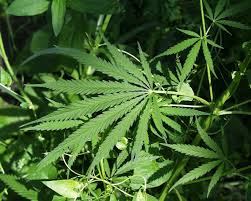
While this time of year is full of social engagements and holiday cheer for many, it is also the darkest and coldest time of the year, especially for those living in northern latitudes. While most people undergo physical changes in the winter, such as lower energy levels, sleepiness, and increased appetite, approximately 1 in 10 individuals experience something more serious–seasonal affective disorder, or SAD. [Read more…]

 More than six million Americans suffer from Alzheimer’s disease or dementia, and that number continues to grow significantly as the U.S. population ages.
More than six million Americans suffer from Alzheimer’s disease or dementia, and that number continues to grow significantly as the U.S. population ages.


 Approximately 147 million people worldwide consume cannabis, or marijuana each year; a number that continues to grow, especially in North America and Europe, according to the World Health Organization.
Approximately 147 million people worldwide consume cannabis, or marijuana each year; a number that continues to grow, especially in North America and Europe, according to the World Health Organization. 






